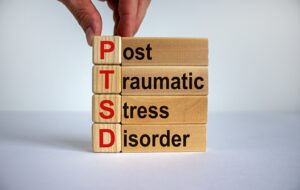Being involved in an accident can result in substantial bodily injuries. However, the psychological impacts of an accident can be just as, if not more, severe as physical harm. That’s why we have created this guide on how to sue for a psychological injury.
We address the duties of care owed by third parties in multiple different circumstances: at work, in public, on the road and briefly, the duty of care owed by medical professionals. You will also see some hypothetical scenarios of how accidents could occur if these duties are breached.
As with compensation for physical injuries, awards for psychiatric harm can be made under two different heads of loss. We have provided an explanation of both of these with a compensation table to aid your understanding.
Our final section looks at the No Win No Fee contract you could benefit from when instructing one of the personal injury experts on our panel of solicitors to represent you.
For a no cost assessment of your eligibility to claim or free advice, our advisors are on hand to take your call. You can reach the team at any time using the contact details provided here:
- Call 0800 408 7827
- You can also contact us through our website here.
- Alternatively, click the live chat button to get through to advisors instantly.
Select A Section
- How To Sue For A Psychological Injury
- What Accidents Could Lead To A Psychological Injury Claim?
- How Much Compensation For A Psychological Injury?
- What Evidence Can Help You Claim Psychological Injury Compensation?
- Why Use A No Win No Fee Solicitor When Claiming For Psychological Injuries?
- Learn More About How To Sue For A Psychological Injury
How To Sue For A Psychological Injury
In order to sue for a psychological injury after an accident, you will need to show three things. First, that a third party owed you a duty of care at the time of the accident. Second, that the third party failed to uphold this duty. And thirdly, their failure caused an accident in which you were injured.
What constitutes a duty of care and how it can be upheld can vary. But as an example, if an employer does not provide their staff with sufficient training for operating work vehicles, and an accident occurs, that employer could be found to be in breach of their duty of care and deemed responsible for the accident.
The duties of care applicable have been provided under the headings below.
Accidents At Work
The Health and Safety at Work etc Act 1974 requires employers to take reasonable steps to ensure the safety of their employees. What steps are considered reasonable will vary depending on the nature of the work being carried out. For example, construction workers will need adequate protective clothing, while office staff will not.
To help employers meet their obligations, the Health and Safety Executive (HSE), Britain’s regulator for health and safety in the workplace, publishes detailed guidance on how employers can protect their workers.
Accidents In Public Places
The party in control of a public place, known as the occupier, must take steps to ensure the reasonable safety of all visitors who are using the premises for the permitted purpose. This duty of care is set out in the Occupiers’ Liability Act 1957.
In order to sue for an injury in a public place, you will need to show that the occupier caused the accident to occur by failing to take the steps necessary to ensure your reasonable safety as a visitor.
Road Traffic Accidents
All road users owe a duty of care to each other and must avoid causing harm. This means upholding the rules and regulations of both the Road Traffic Act 1988 and the Highway Code.
Certain road users require extra care. Pedestrians are deemed the most vulnerable as they do not have the protection afforded by a motor vehicle. A driver who does not drive with due care and attention could cause a serious road traffic accident.
Medical Negligence
While not the focus of our guide, we wanted to briefly touch on medical negligence. Healthcare professionals owe a duty of care to their patients to provide care that meets the correct standard. If a medical professional fails to uphold the expected standard and the patient experiences avoidable harm such as post-traumatic stress disorder, the patient could be eligible to make a psychological injury compensation claim.
What we mean by avoidable harm is harm that you would not have sustained had you been provided with the correct standard of medical care.
To find out how to sue for a psychological injury, talk to our advisors. The team are available at any time using the contact information provided above.
What Accidents Could Lead To A Psychological Injury Claim?
Now that we’ve explained the duties of care owed by different third parties, we wanted to provide some illustrative examples of how breaches of these duties could result in an accident where psychological harm is caused.
- An employer failed to carry out the scheduled maintenance inspections on the workplace equipment. Had these inspections been carried out, a faulty ladder would have been spotted and replaced. An employee was instructed to use the ladder to install some outside lighting on the building. As they were completing work, the ladder gave way and they fell from a considerable height. The employee was taken to hospital in a very serious condition. As you witnessed the incident, you suffered considerable psychological harm and severe basophobia.
- A leaking freezer in a supermarket had caused a significant water hazard on the aisle. No wet floor sign had been placed nor had any action been taken to clean the spill up. You slipped on the water, hitting your head on the freezer as you fell. The resulting head injury caused substantial psychological damage.
- A car driver speeding on a motorway caused a severe collision with several other vehicles. Serious injuries were suffered by the people involved. You suffered a significant psychological injury from being involved in the accident and witnessing others suffer life-changing injuries.
- Serious errors in hospital administration resulted in surgeons beginning an operation on your left leg when the surgery should have been performed on your right leg. The additional surgical scarring and recovery time, as well having to go through major surgery again, caused you significant distress.
Can You Claim For A Psychological Injury As A Primary Or Secondary Victim?
As well as claiming as the primary victim of an accident, you could also be eligible to claim as a secondary victim. What this means is if you were not involved in the accident but saw it take place, for example, you saw a colleague get crushed by a falling shelf, you could claim the distress of witnessing this.
To find out how to sue for a psychological injury as a primary or secondary victim, talk to our advisors today.
How Much Compensation For A Psychological Injury?
A successful psychological injury claim will see you awarded a compensation payout. There are two heads of loss that compensation payouts can be awarded under. These are known as general and special damages. We’ll cover special damages in a later section.
General damages award for the physical and psychological injuries caused by the accident. For our guide, we’re focussing on the psychological impacts. Establishing a potential compensation figure for your claim is something a solicitor from our panel could help you with. The legal team assigned this task can refer to your provided medical evidence in conjunction with the guidelines from the Judicial College.
Commonly referred to as the JCG, this document lists guideline compensation figures for various injuries. We have used the figures for psychiatric harm in the table here. The top entry has not been taken from the JCG.
Compensation Table
We would also like to point out that this table has been included to offer guidance only.
| Injury | Severity | Guideline Compensation Figure | Description |
|---|---|---|---|
| Very Severe Psychiatric Injuries with Special Damages Payments | Very Severe | Up to £250,000 and above | The Injured person will have suffered significant psychiatric harm and incurred substantial financial losses such as lost income, the need for counselling and other care expenses. |
| General Psychiatric Damage | Severe (a) | £66,920 to £141,240 | Severe problems across all areas of life. The prognosis will be very negative. |
| Moderately Severe (b) | £23,270 to £66,920 | Significant problems with regard to daily life, work and personal relationships but with a more positive prognosis. | |
| Moderate (c) | 7,150 to £23,270 | The injured person will have undergone a marked improvement and their prognosis will be positive. | |
| Less Severe (d) | £1,880 to £7,150 | Factors considered for this bracket will include the impact of daily activities and sleeping patterns. | |
| Post-Traumatic Stress Disorder | Severe (a) | £73,050 to £122,850 | Permanent effects across all areas of life that prevent the injured person from functioning anywhere near their pre trauma level |
| Moderately Severe (b) | £28,250 to £73,050 | A better prognosis and some potential for recovery but significant disablement for the foreseeable future. | |
| Moderate (c) | £9,980 to £28,250 | The injured person will have mostly recovered and not be experiencing any severely disabling continuing effects. | |
| Less Severe (d) | £4,820 to £9,980 | Virtual full recovery within one or two years. Any persisting symptoms will be minor. |
Special Damages
Certain financial losses could be reimbursed as special damages payments, the second of the two heads of loss. While by no means an exhaustive list, we have provided some examples of such costs that you could be reimbursed for as part of your compensation:
- Following a psychological injury, you may require talking therapy or counselling.
- If you have taken time off work to recover after your accident, you could claim back your lost earnings.
- You may require additional care, such as assistance with meal preparation and other domestic tasks.
- In cases where an accident has impacted your mobility, you could claim compensation for modifications to your home, such as ramps or an accessible shower.
Call our advisors to see if you could claim for physical symptoms, emotional distress and financial losses caused by a responsible party breaching their duty of care.
What Evidence Can Help You Claim Psychological Injury Compensation?
The evidence required for a psychological injury claim is twofold. First, you will need to demonstrate that the accident was the fault of the third party. Secondly, that you suffered psychological harm as a result of the accident.
Some possible evidence you could collect has been listed below:
- Seeking professional medical help is always recommended following an accident. Your health and wellbeing must always be the first priority. As well as getting your injuries seen to, the medical records from this treatment will be useful in showing the extent of your injuries.
- Formal diagnoses, as well as notes from a therapist, can be used to show what psychiatric harm you have suffered.
- Keep a diary during any treatment you receive, with a particular focus on your treatment and its effects on you.
- You have the right to request copies of CCTV footage that you appear in. Video footage will show how the accident took place.
- Footage from a dash cam or a similar device could also be acquired following an accident on the road.
- Take photographs of your injuries, the scene of the accident and its cause.
- Anyone who saw the accident take place could act as a witness. Take down their contact information so these individuals can provide a statement during the claims process.
We appreciate that following a psychological injury, how to prove your claim is an additional concern. That’s why the solicitors on our panel of personal injury experts are more than willing to assist you with assembling a body of evidence. If our advisors decide your potential claim is valid, they could connect with a legal expert from our panel. A solicitor can not only support with collecting evidence but also ensure your claim is brought within the relevant time period.
Contact our advisors today using the details below for your free assessment and to learn how to sue for a psychological injury.
Why Use A No Win No Fee Solicitor When Claiming For Psychological Injuries?
While it is not required that you use the services of a solicitor when making a psychological injury claim, it is certainly advisable. Your potential claim will certainly benefit from the knowledge and experience a solicitor can provide. A solicitor can also assist you during the pre-action protocol and the steps that need to be taken when making a personal injury claim.
How Our Panel of Solicitors Can Help You
Use the details provided below to talk to our advisors and get a free assessment of your eligibility to begin a claim. If eligible, our advisors could connect you to one of the highly experienced personal injury solicitors from our panel. The type of No Win No Fee contract our panel can offer is called a Conditional Fee Agreement (CFA).
This type of contract typically means there are no upfront or ongoing fees for the solicitor’s work on your claim. You will also not have to pay should the claim fail.
However, if you win your psychological injury claim, you will pay a percentage of your compensation to the solicitor as their success fee. The fee percentage is legally capped by The Conditional Fee Agreements Order 2013, so you will receive most of any compensation that is awarded.
For a no cost assessment of your eligibility to claim or free advice, our advisors are on hand to take your call. You can reach the team at any time using the contact details provided here:
- Call 0800 408 7827
- You can also contact us through our website here.
- Alternatively, click the live chat button to get through to advisors instantly.
Learn More About How To Sue For A Psychological Injury
Read some of our other guides to learn more about making psychological injury compensation claims:
- A road traffic accident can result in significant psychological distress. Find out how to sue a drunk driver with this guide.
- You could claim compensation for facial scarring for both your injuries and the psychiatric impact.
- Find out how to sue for a slip and trip accident here.
You can also view these external resources for further guidance: bb
- Access guidance and support for a range of mental health conditions through the NHS website.
- Learn more about the work of the Royal Society for the Prevention of Accidents (RoSPA) here.
- Read the vehicle insurance advice on what to do if you’re in an accident from the Government.
Thank you for reading our ”How To Sue For A Psychological Injury” guide. You can ask our advisors any questions that may have come up regarding claiming compensation for psychological harm. The team can also assess the validity of your potential claim free of charge. Get in touch today using the contact details provided above.



